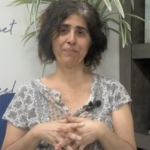Spinal Cancer
Medically Reviewed by: Dr. Bautista
Our Editorial Policy
Updated on: November 21, 2019
About Spinal Cancer
Spinal cancers are masses of abnormal cells that form malignant tumors in the spinal cord and vertebrae. It’s exceptionally rare for cancerous tumors to originate on the spinal cord. Most are metastatic or secondary cancers that have spread to the area.
Where is Spinal Cancer Located?
The spinal cord connects to the brain and has bundles of long nerve fibres that send signals which control the body. Spine tumors will typically differ from children cancer patients to adult cancer patients. They originate in different areas, arise from other cell types, and may require alternative treatments. In both cases, the cancer never spreads from those areas of tissue.
Are There Different Types of Spinal Cancer?
There are several different types of spinal cancer, including:
- Gliomas – Tumors that start in glial cells.
- Astrocytomas – Tumors that grow in a specific type of glial cell called astrocytes.
- Oligodendrogliomas – Tumors that begin in brain glial cells called oligodendrocytes.
- Ependymomas – Tumors in ependymal cells that line the ventricles.
- Meningiomas – Cancer that starts in the layer of tissue (meninges) surrounding the brain and spinal cord.
- Medulloblastomas – Cancer that originates in the neuroectodermal cells of the cerebellum.
Spinal Cancer Statistics
Less than 1% of all people will develop a type of spinal cancer, coupled with the formation of metastatic spinal tumors. Based on clinical research and trials, the American Cancer Society estimates that approximately 24,000 Americans are diagnosed with a malignant tumor of the spinal cord or brain.
Causes and Risk Factors
Unlike other forms of cancer, metastatic tumors in the spinal canal are rarely caused or worsened by a person’s actions or behaviour. Risk factors include:
- Radiation exposure – Typically by radiation therapy meant to treat another form of cancer.
- Family history – Although rare, spinal cancer can run in familial genetic pools.
- Von Hippel-Lindau Disease – People with this disease are predisposed to developing both benign and malignant tumors.
- Syndromes – Li-fraumeni syndrome, Gorlin syndrome, Turcot syndrome, and Cowden syndrome increase the risk of tumors emerging on the spine and vertebrae.
Early Detection of Cancer Cells, Diagnosis, and Staging
Signs and Symptoms of Small Spinal Cancer
Symptoms of both brain and spinal cancer typically revolve around intracranial pressure. Though they can vary by patient, signs and symptoms you should be aware of include:
- Balance problems
- Behavioral change
- Blurred vision
- Coma
- Drowsiness
- Headache
- Nausea
- Personality change
- Seizures
- Vomiting
The Different Stages of Spinal Cancer
Since tumors on the spinal cord never spread, they don’t share the staging of other cancers. Instead, there are factors that medical oncologists will consider when treating the cancer, including:
- Patient’s age
- How much of an impact the tumor has on bodily activity, brain function, and quality of life
- Tumor type
- Tumor grade
- Whether the tumor cells have genetic mutations
- Location of tumor and size of tumor, as demonstrated by the CT scan
Alternative / Natural Spinal Cancer Treatment Options
Today, the forefront of cancer treatment research is pointing away from traditional treatment methods to alternative methodologies. As opposed to relying on chemotherapy, doses of radiation, or even minimally invasive surgery, our oncologists provide non-surgical treatment plans to prevent further damage to the body. At Immunity Therapy Center, we treat our patients with a carefully designed plan of alternative treatments that are intended to strengthen the immune system and aid the body in its fight against these relentless cancer cells. Unlike chemo, these treatments do not destroy the body.
Dr. Bautista starts by having a consultation with patients. He conducts a rigorous analysis and then creates a custom treatment plan based on your type of cancer, signs, symptoms, and more. From there, patients are assigned a doctor that meets with them daily to monitor the efficacy of the treatment and adjust processes accordingly to ensure their quality of life is still a priority, even when fighting tumor cells.
At ITC, our desire is to give our patients a safe and natural way for them to effectively ward off cancer. If you or someone you love has spinal cancer, we encourage you to reach out and schedule a consultation with the doctor.
Together, we can beat it.
Sources:
- Cancer.org. Brain and Spinal Cord Tumors in Adults. https://www.cancer.org/cancer/brain-spinal-cord-tumors-adults/detection-diagnosis-staging/staging.html
- Cancer.net. Brain Tumor. https://www.cancer.net/cancer-types/brain-tumor/statistics
- American Association of Neurological Surgeons. Spinal Tumors. https://www.aans.org/Patients/Neurosurgical-Conditions-and-Treatments/Spinal-Tumors
Therapies we use
At Immunity Therapy Center, our goal is to provide objective, updated, and research-based information on all health-related topics. This article is based on scientific research and/or other scientific articles. All information has been fact-checked and reviewed by Dr. Carlos Bautista, a Board Certified Medical Doctor at Immunity Therapy Center. All information published on the site must undergo an extensive review process to ensure accuracy. This article contains trusted sources with all references hyperlinked for the reader's visibility.
Customized Care For the Body And The Mind
Discuss Your Custom Alternative Treatment Plan With Our Team Today
Hear from Our Patients
See why the Immunity Therapy Center is a trusted name for medical tourism and cancer treatment centers in Mexico.
- Diseases and Treatments
- Our Mexico-based Center and Team
- Patient Expectations and Experiences
- Costs and Travel Arrangements
Diseases and Treatments
Many patients come to us after going through several rounds of chemotherapy, radiation, surgery, and other conventional cancer treatments. Our alternative cancer therapy programs are often more effective and have fewer side effects for our patients than those treatments.
Many of our alternative therapies are designed to boost your immune system so it is better able to recognize, fight, and kill cancer cells without the need of chemotherapy and radiation.
Learn more about our alternative cancer therapies.
We offer the following alternative therapies for naturally treating cancer and other diseases:
- Whole Body Hyperthermia
- Localized Hyperthermia
- Sonodynamic Therapy
- Laser Cancer Therapy
- Insulin Potentiation Therapy (IPT)
- Rife Therapy
- Intravenous Solutions (IV Cancer Therapy)
- Enzymatic Cancer Therapy
- Oxygen Cancer Therapy
- Vitamin and Mineral Supplements
- Laetrile Therapy (Vitamin B17)
- Specific Transfer Factor Vaccine Against Cancer
- Regenerative Cell Cancer Therapy (Peptide Treatment)
- Intraperitoneal Perfusion Hyperthermia
- Viral Anticancer Vaccine
We emphasize immunotherapy cancer therapy, which includes different therapies designed to boost and strengthen your immune system so it can recognize, fight, and kill cancer cells on its own. Immunity Therapy Center is unique because we are able to offer both alternative and conventional treatments in customized, individualized programs.
Learn more about our alternative cancer therapies.
Most treatment programs are completed in three weeks. Depending on the stage and condition of your disease, you may require a treatment program of six weeks or more.
Learn more about our treatment process.
Dr. Bautista will evaluate you once your program is complete and recommend follow-up care. Depending on your situation, this may include alternative therapies, medications, and natural supplements you can take at home, or returning to our center in three to six months for further treatment.
Learn more about our alternative cancer treatment process.
Our Mexico-based Center and Team
We are in Tijuana, a major metropolitan city in Baja California, Mexico, right across the border from San Diego, California. Learn more about our location and our facility.
Dr. Bautista received formal medical training from Baja California State University in Mexico. He also holds a Masters in Nutrition from the same university. He has worked as a Director for alternative medicine hospitals. Early in his career, Dr. Bautista became interested in alternative cancer therapy and treatments and has studied alternative treatments extensively around the world.
Learn more about Dr. Bautista.
Patient Expectations and Experiences
Our alternative, natural treatment programs are completely customized and different for each person. Dr. Bautista personally evaluates each patient to design a holistic, alternative therapy program based on specific needs. He meets with every patient, every day, to monitor and evaluate his or her treatment and progress. This allows him to make immediate adjustments to treatments as needed.
Our entire team strives to make your treatment program a positive experience.
Learn more about our treatment process and listen to some of our patients’ experiences at Immunity Therapy Center.
We treat a wide range of patients with a variety of cancer types from stage 1 to stage 4, as well as patients with different autoimmune diseases, chronic degenerative diseases, and infectious diseases. All these factors, as well as previous treatments and medical history, impact individual success and survival rates.
Dr. Bautista will discuss your condition and chance of success during your initial consultation. Many of our patients do go into remission and see enhanced quality of life following treatment.
Learn more about survival and success rates.
We highly encourage bringing a friend or family member. Having strong support is an important factor in your treatment success.
Dr. Bautista and our nutritionist will discuss your diet with you during your cancer treatment. Your specific dietary needs may vary, but we encourage you to eat a balanced, organic diet as much as possible.
We have an onsite chef that prepares organic, healthy meals at our center.
Costs and Travel Arrangements
A typical three-week treatment program costs $18,995USD, and includes all therapies, diagnostics, and a healthy, organic, breakfast and lunch (+2 juices/smoothies) Monday – Saturday. Room and other board, travel costs, surgeries, and blood transfusions are not included. Some very specific therapies may not be included. Depending on your stage and condition, you may need six weeks of treatment or more.
There are options to help you cover the cost of your alternative cancer treatment at Immunity Therapy Center. Visit our Payment & Financing page to learn more.
Unfortunately, most major health insurance providers do not cover alternative treatments, but there are other options to help you cover the cost of your treatment. Visit our Payment & Financing page to learn more.
We accept major credit cards (some fees may apply), personal and cashier’s checks, wire transfers, and cash. You can also easily PAY ONLINE.
Airfare is not included in the program cost; however, transfers to and from the airport (Tijuana or San Diego) and transportation between our center and your hotel are included.
You may fly into Tijuana, Mexico or San Diego, California. Wewill make arrangements to meet and pick you up at either airport. We are only 25 minutes from the San Diego International Airport. You may also drive to the center. When you schedule your treatment, we will provide detailed driving directions.
Learn more about making travel arrangements to our facility in Tijuana, Mexico.
If you are undergoing outpatient treatment, you will need to stay in a local hotel or other lodging option during your treatment. We are located near several quality hotels in Tijuana, and have arranged special rates for our patients.
Learn more about recommended hotels and accommodations on our Travel Information page.
Start Your Healing Journey with a FREE Consultation
At ITC, we understand the importance of feeling heard and supported. Fill out our form, to speak with one of our patient advocate in the next 24 hours to have a free consultation and guidance, creating a personalized treatment plan just for you. You’re not alone on your path to healing. We’re here to support you through every step!







